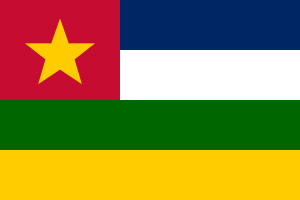Difference between revisions of "Language/Pulaar/Grammar/Pronouns"
m (Quick edit) |
m (Quick edit) |
||
| Line 54: | Line 54: | ||
In this lesson, we have looked at the different types of pronouns in Pulaar and how to form them. We hope that you now have a better understanding of Pulaar pronouns and can use them correctly in your conversations and writing. | In this lesson, we have looked at the different types of pronouns in Pulaar and how to form them. We hope that you now have a better understanding of Pulaar pronouns and can use them correctly in your conversations and writing. | ||
<br><hr>If you have any questions, please ask them in the comments section below.<br>Feel free to edit this wiki page if you think it can be improved. 😎 | <br><hr>If you have any questions, please ask them in the comments section below.<br>Feel free to edit this wiki page if you think it can be improved. 😎 | ||
==Related Lessons== | |||
* [[Language/Pulaar/Grammar/Questions|Questions]] | |||
* [[Language/Pulaar/Grammar/Conditional-Mood|Conditional Mood]] | |||
* [[Language/Pulaar/Grammar/Negation|Negation]] | |||
* [[Language/Pulaar/Grammar/Future-Tense|Future Tense]] | |||
* [[Language/Pulaar/Grammar/Plurals|Plurals]] | |||
* [[Language/Pulaar/Grammar/Adjectives|Adjectives]] | |||
{{Pulaar-Page-Bottom}} | {{Pulaar-Page-Bottom}} | ||
Revision as of 23:03, 25 February 2023
Hi Pulaar learners! 😊
In today's lesson, we will be discussing Pulaar pronouns. Pronouns are an important part of the Pulaar language and understanding them is essential for speaking and writing correctly. We will look at the different types of pronouns, how they are used, and how to form them.
Types of Pronouns
Pulaar has two main types of pronouns: personal pronouns and possessive pronouns.
Personal Pronouns
Personal pronouns are used to refer to people or things. They can be either singular or plural.
The singular personal pronouns in Pulaar are:
- ndee (I)
- nga (you)
- ñaaw (he/she/it)
The plural personal pronouns in Pulaar are:
- ndeen (we)
- ngay (you)
- ñaawɗe (they)
Possessive Pronouns
Possessive pronouns are used to show ownership or possession. They can also be either singular or plural.
The singular possessive pronouns in Pulaar are:
- ndeeɗo (my)
- ngaɗo (your)
- ñaawɗo (his/her/its)
The plural possessive pronouns in Pulaar are:
- ndeenɗo (our)
- ngayɗo (your)
- ñaawɗeɗo (their)
How to Form Pronouns
Pronouns in Pulaar can be formed in different ways depending on the context.
For example, the pronoun ndee (I) can be changed to ndeen (we) by adding the suffix -en. Similarly, the pronoun nga (you) can be changed to ngay (you) by adding the suffix -ay.
The possessive pronouns can also be formed in a similar way. For example, the pronoun ndeeɗo (my) can be changed to ndeenɗo (our) by adding the suffix -en. Similarly, the pronoun ngaɗo (your) can be changed to ngayɗo (your) by adding the suffix -ay.
Conclusion
In this lesson, we have looked at the different types of pronouns in Pulaar and how to form them. We hope that you now have a better understanding of Pulaar pronouns and can use them correctly in your conversations and writing.
If you have any questions, please ask them in the comments section below.
Feel free to edit this wiki page if you think it can be improved. 😎
